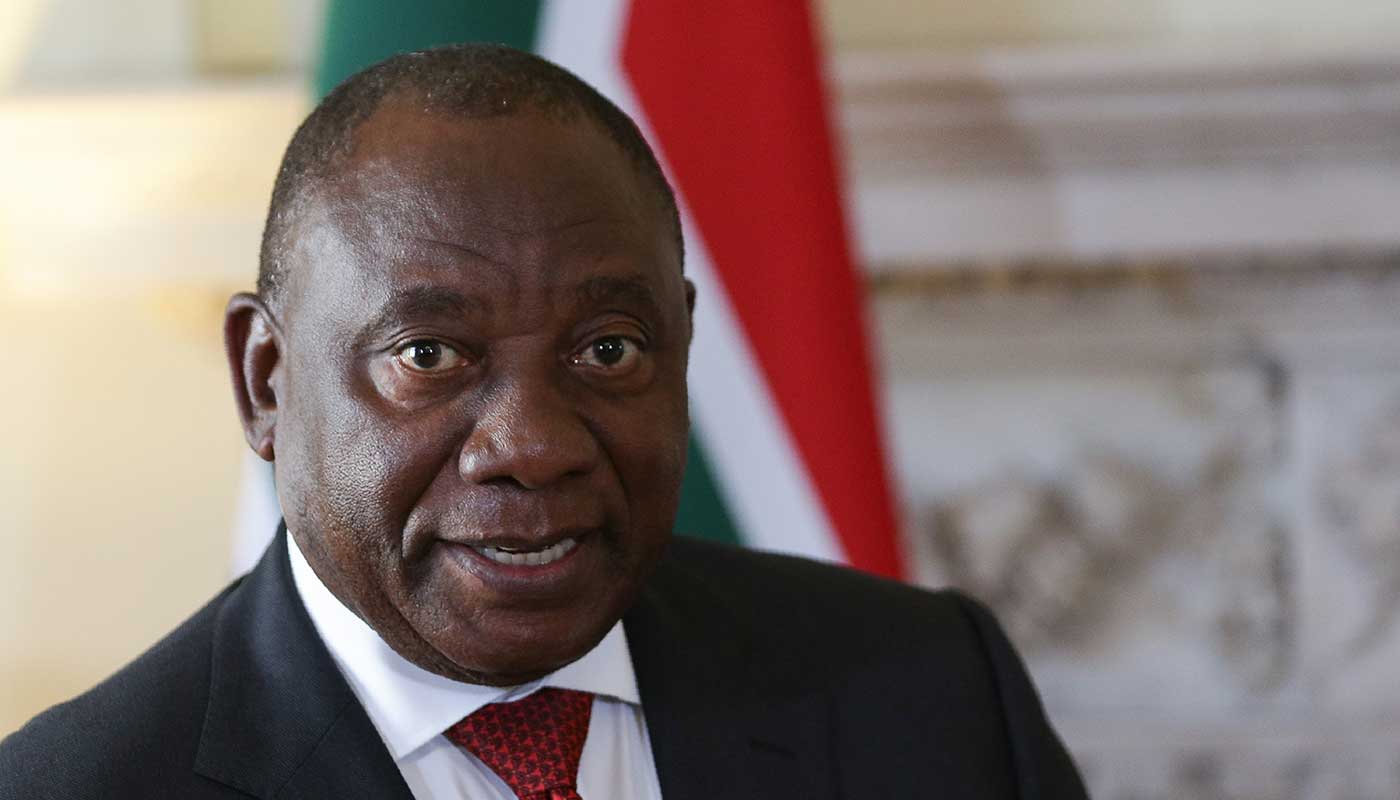Cyril Ramaphosa leaves London as protests erupt in South Africa
Violent clashes have broken out against an ANC leader in South Africa’s North West Province

A free daily email with the biggest news stories of the day – and the best features from TheWeek.com
You are now subscribed
Your newsletter sign-up was successful
South African president Cyril Ramaphosa has left the Commonwealth Heads of Government Meeting in London early, due to violent protests in his country.
Protesters clashed with police after shops were looted and vehicles were set on fire in Mahikeng, capital of North West Province.
They are calling for the “resignation of provincial Premier Supra Mahumapelo - a member of Mr Ramaphosa’s governing African National Congress (ANC)” the BBC reports.
The Week
Escape your echo chamber. Get the facts behind the news, plus analysis from multiple perspectives.

Sign up for The Week's Free Newsletters
From our morning news briefing to a weekly Good News Newsletter, get the best of The Week delivered directly to your inbox.
From our morning news briefing to a weekly Good News Newsletter, get the best of The Week delivered directly to your inbox.
A South African police unit known as The Hawks have raided Mahumapelo’s offices, with allegations of maladministration, fraud and corruption amounting to about 160 million rand (£9.5 million), Bloomberg reports.
Mahumapelo has denied the allegations, and has called the protests “an anti-Supra Mahumapelo political campaign which seeks to intimidate residents of Mahikeng”.
South Africa’s Independent Online says protesters are using stones as weapons, and police are responding with tear gas and rubber bullets in an attempt to break up the protest.
Ramaphosa, who took office in February, called for “calm and adherence to the rule of law of the province”, while urging police to “exercise maximum restraint in execution of their duties”.
A free daily email with the biggest news stories of the day – and the best features from TheWeek.com
He had been in London to “assure global investors of his determination to tackle corruption in his country and restore faith in its public institutions”, says The New York Times.
-
 The environmental cost of GLP-1s
The environmental cost of GLP-1sThe explainer Producing the drugs is a dirty process
-
 Nuuk becomes ground zero for Greenland’s diplomatic straits
Nuuk becomes ground zero for Greenland’s diplomatic straitsIN THE SPOTLIGHT A flurry of new consular activity in Nuuk shows how important Greenland has become to Europeans’ anxiety about American imperialism
-
 ‘This is something that happens all too often’
‘This is something that happens all too often’Instant Opinion Opinion, comment and editorials of the day
-
 Epstein files topple law CEO, roil UK government
Epstein files topple law CEO, roil UK governmentSpeed Read Peter Mandelson, Britain’s former ambassador to the US, is caught up in the scandal
-
 Iran and US prepare to meet after skirmishes
Iran and US prepare to meet after skirmishesSpeed Read The incident comes amid heightened tensions in the Middle East
-
 Israel retrieves final hostage’s body from Gaza
Israel retrieves final hostage’s body from GazaSpeed Read The 24-year-old police officer was killed during the initial Hamas attack
-
 China’s Xi targets top general in growing purge
China’s Xi targets top general in growing purgeSpeed Read Zhang Youxia is being investigated over ‘grave violations’ of the law
-
 Panama and Canada are negotiating over a crucial copper mine
Panama and Canada are negotiating over a crucial copper mineIn the Spotlight Panama is set to make a final decision on the mine this summer
-
 Why Greenland’s natural resources are nearly impossible to mine
Why Greenland’s natural resources are nearly impossible to mineThe Explainer The country’s natural landscape makes the task extremely difficult
-
 Iran cuts internet as protests escalate
Iran cuts internet as protests escalateSpeed Reada Government buildings across the country have been set on fire
-
 US nabs ‘shadow’ tanker claimed by Russia
US nabs ‘shadow’ tanker claimed by RussiaSpeed Read The ship was one of two vessels seized by the US military